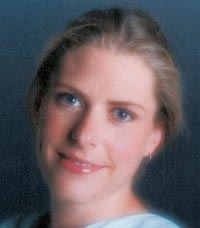Toronto is currently hosting WorldPride 2014, the now internationally recognized celebration of the human right to sexual diversity. The ten-day festival boasts concerts, art shows, parades and parties – LOTS of parties.
It’s the first time North America has won the rights to host the event and the theme this year is “Rise Up,” symbolizing the perseverance of members of the LGBTQ community in speaking out for justice and fairness, as well as refusing to be afraid or ashamed of who they are.“LGB…T… what?” I hear you splutter. It stands for Lesbian, Gay, Bi-sexual, Transgender and Queer. Yes, you heard me right – Queer.
To me, the word ‘queer’ smacks of bygone days spent reading Famous Five books where cream buns were accompanied by ‘lashings of ginger beer’, and a shifty character could safely be identified by the ‘queer look about him’. But then, I had a sheltered upbringing.
In modern-day Britain ‘queer’ is best known as a derogatory term for homosexuals so its usage is largely restricted to bigots and schoolkids. To this end, even Enid Blyton’s considerable legacy has been ‘sensitively and carefully’ revised to bring old-fashioned language and outmoded expressions up to date.
So imagine my surprise upon moving to Canada, when I heard the term used openly on national radio with neither a trace of malice nor apology. ‘How peculiar!’ exclaimed my best Famous Five thought-voice, especially given Canada’s well-known progressive attitude to LGBT rights. Either Canada’s a little behind the times, I surmised, or they’re reflecting a way of thinking that hasn’t yet made it into the mainstream.
Despite the popular view that Canada was a leading light in this area, the fight for acceptance here was no cake-walk. A huge step forward came in 1969 when same-sex intimate activity between consenting adults was decriminalized, with then-Justice Minister and Attorney General of Canada Pierre Trudeau (who went on to became the 15th Prime Minister of Canada) famously commenting, “There’s no place for the state in the bedrooms of the nation.”
But discrimination persisted long beyond the birth of that legislative landmark. Tensions finally boiled over in 1981 when Toronto police targeted bathhouses in the city, arresting 306 people in what was known as ‘Operation Soap’. Seen as an effort to drive bathhouses and gay bars out of business the operation gave rise to the first official Pride Week, though the annual event had to wait until 1998 to receive official recognition.
On July 20, 2005, Canada became the first country in the Americas (third in the world after the Netherlands and Belgium) to legalize same-sex marriage nationwide with the enactment of the Civil Marriage Act. Same-sex adoption is also legal in all provinces and territories under varying rules. Discrimination on the basis of sexual orientation in employment, housing, and public and private accommodations is banned nationwide.
But getting back to the word ‘queer‘… why was it being bandied about on national radio? It seems that while it was indeed once a homophobic epithet that many of us remember being hurled around the schoolyard with gay abandon (sorry, couldn’t resist), clearly language usage has evolved.
In recent years, the word has been appropriated with pride by many within the LGBT community as a self-affirming and unifying descriptor for a large and diverse group of people; a metaphorical two-fingered salute to the haters, if you will. In fact, the term ‘homosexual’ is considered offensive by some.
That being said, use of the word ‘queer’ is still somewhat controversial and can be tricky even within the community; it seems to be more accepted among younger people, though it doesn’t necessarily mean the same thing as ‘gay’.
All things considered, my guess is it occupies a similar space to the ‘N’ word – a term best left to those who self-identify. In these days of inflated individual rights and rampant political correctness you can barely order coffee without offending someone. Perhaps the safest advice would be for us all to remember that words mean different things to different people and strive to be a little less sensitive.
by Aisha Ashraf.
Aisha Isabel Ashraf is a freelance writer and author of the popular blog EXPATLOG – a collection of irreverent observations from her experiences as a "cultural chameleon". It's where you'll find her, strung out on caffeine, humorously dissecting the peculiarities of expat life for her own amusement and the benefit of future generations."
She can be contacted via the usual avenues (e-mail, Twitter, Facebook) – just swing by the blog for directions.
Read Aisha's other Expat Focus articles here or click the button below to view her own blog…


